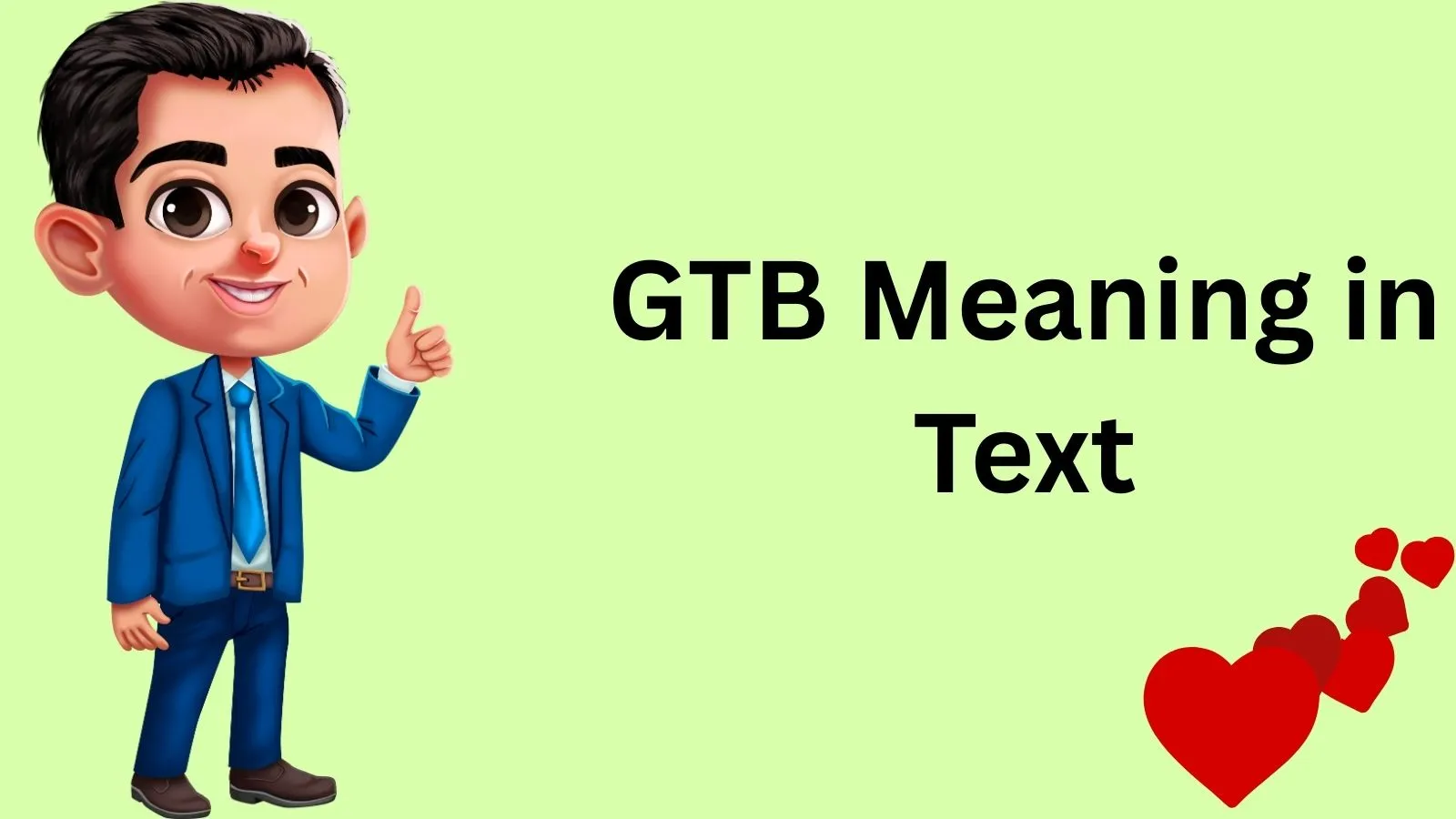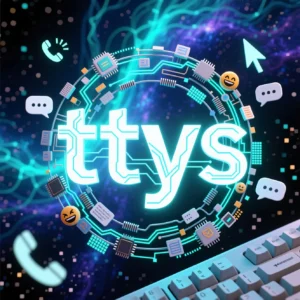In today’s fast-paced digital world, slang and abbreviations dominate our conversations.
Whether you’re texting a friend, scrolling through social media, or gaming online, you’ve likely come across the term GTB. But what does it mean, and why is it so popular? This blog post will break down everything you need to know about GTB, from its definition and origins to its usage in various contexts.
By the end, you’ll be equipped to use and respond to GTB like a pro!
What Does GTB Mean?
GTB stands for “Got to Go” or “Got to Bounce”. It’s a casual way of saying you need to leave or end a conversation. This abbreviation is commonly used in texting, social media, and online chats to quickly communicate that you’re busy or need to step away.
Real-Life Examples of GTB in Use
Here’s how GTB might appear in everyday conversations:
- Texting:
Friend 1: “Hey, wanna grab dinner tonight?”
Friend 2: “Sorry, GTB—got a meeting in 10!” - Gaming:
Player 1: “We’re about to win this round!”
Player 2: “GTB, my mom’s calling me downstairs.” - Social Media:
Comment: “This thread is hilarious, but GTB. Work calls!”
The Origins and Evolution of GTB
The term GTB emerged alongside the rise of instant messaging and texting in the early 2000s. As people sought quicker ways to communicate, abbreviations like GTB became popular. Over time, it has evolved to fit various contexts, from casual chats to gaming communities.
Today, GTB is widely recognized across platforms like WhatsApp, Twitter, and Discord. Its simplicity and versatility have made it a staple in digital communication.
How GTB Is Used in Different Contexts
GTB is a flexible term that fits seamlessly into various situations. Here’s how it’s used in different settings:
1. Texting
In personal conversations, GTB is a quick way to let someone know you’re busy or need to leave.
Example:
Friend: “Did you finish the project?”
You: “Almost done, but GTB—my dog just knocked over the plant!”
2. Social Media
On platforms like Twitter or Instagram, GTB is often used in comments or captions to indicate the end of an interaction.
Example:
Post: “This concert is amazing!”
Comment: “GTB, but I’ll catch up later!”
3. Gaming
Gamers use GTB to signal they’re stepping away from the game.
Example:
Teammate: “We need you for the next round!”
You: “GTB, dinner’s ready. Be back in 20!”
Common Misconceptions About GTB
While GTB is straightforward, some people confuse it with other abbreviations like GTG (Good to Go) or GB (Goodbye). However, GTB specifically means “Got to Go” or “Got to Bounce”, emphasizing the need to leave.
It’s also important to note that GTB is generally informal. Using it in professional settings might come across as unprofessional unless the context is very casual.
Similar Terms and Alternatives
Here are some alternatives to GTB and how they compare:
| Term | Meaning | Context |
| GTG | Good to Go | Neutral, can mean ready or leaving |
| BRB | Be Right Back | Temporary departure |
| TTYL | Talk to You Later | Ending a conversation |
| AFK | Away From Keyboard | Gaming or online chats |
How to Respond to GTB
Your response to GTB depends on the context and your relationship with the person. Here are some examples:
- Casual: “No worries, catch you later!”
- Funny: “GTB? More like GT-Great Friend! See ya!”
- Professional: “Understood. Let’s reconnect tomorrow.”
- Privacy-Conscious: “Thanks for letting me know. Take care!”
Regional and Cultural Differences
GTB is primarily used in English-speaking countries, but its meaning is easily understood globally. In some regions, people might use local slang instead, like “Gotta jet” in the U.S. or “Chalo” in India.
GTB in Online Communities and Dating Apps
On platforms like Tinder or Twitter, GTB is often used to politely end a conversation. For example:
Match: “You’re really funny!”
You: “Thanks! GTB for now, but let’s chat later.”
Hidden or Offensive Meanings
Fortunately, GTB doesn’t have any hidden or offensive meanings. However, tone and context matter. Using it abruptly might come across as rude, so pair it with a polite explanation when necessary.
Is GTB Suitable for Professional Communication?
While GTB is great for casual chats, it’s not ideal for formal settings. Instead, use phrases like “I need to step away” or “Let’s continue this later.”
FAQs About GTB
- What does GTB stand for?
GTB means “Got to Go” or “Got to Bounce.” - Is GTB rude?
Not inherently, but tone and context matter. - Can I use GTB in professional emails?
It’s better to use more formal language. - What’s the difference between GTB and GTG?
GTB means leaving, while GTG can mean ready or leaving. - Is GTB used globally?
Yes, but local slang might be more common in some regions.
Conclusion
GTB is a handy abbreviation that simplifies digital communication. Whether you’re texting, gaming, or scrolling through social media, understanding and using GTB can make your interactions smoother and more efficient. Just remember to consider the context and tone to ensure your message is received as intended. Now that you’re armed with this knowledge, go ahead and use GTB with confidence!



Pingback: DND Meaning in Text: A Complete Guide (Latest 2025)
Pingback: S/U Meaning in Text: A Complete Comprehensive Guide (Latest Update)
Pingback: SS Meaning in Text: Ultimate Guide to Its Meaning in Text
Pingback: TDY Meaning in Text: Your Complete Guide to This Handy Acronym 💼✈️
Pingback: NMMS Meaning in Text: A Complete Guide to Understanding and Using It (Updated)